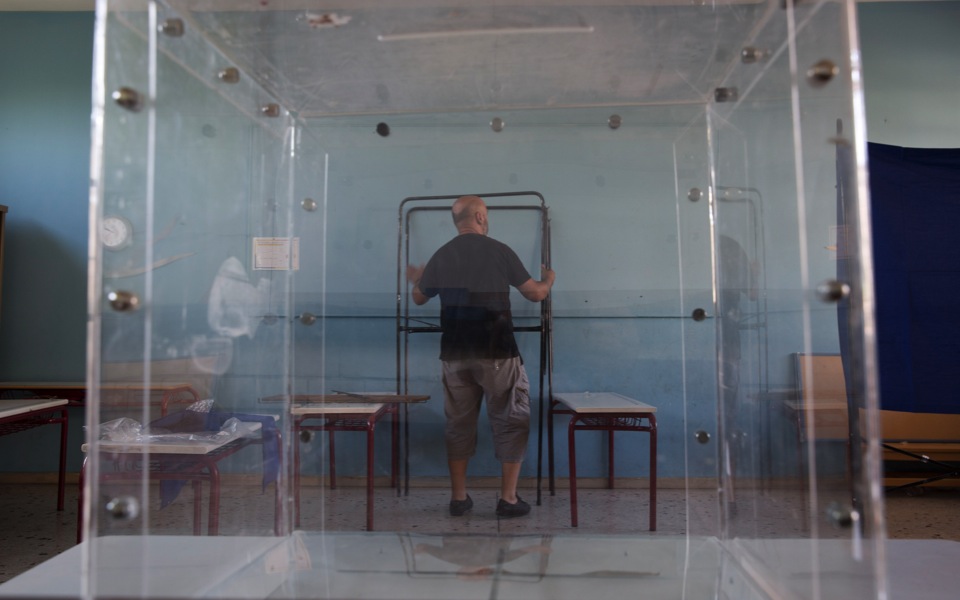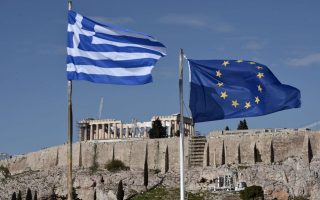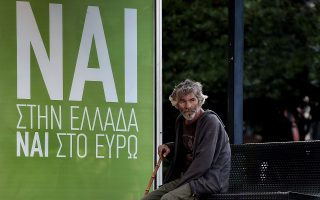Greeks to vote in referendum that will determine fate in euro

As Greeks prepare to vote in a crucial referendum on Sunday that will determine the country’s fate in the eurozone, Prime Minister Alexis Tsipras appealed to citizens to vote “no” to proposals by the country’s creditors as political rivals and other champions of the “yes” camp warned people against the potential risks of aligning with the government.
In a televised address, Tsipras urged Greeks to vote “‘no’ to ultimatums, divisions and fear.” He stressed that the referendum is not a vote on whether Greece will remain in the euro. “What is at stake is not Greece’s place in the euro but the continuation of a policy that creditors themselves admit is a deadlock,” Tsipras said, referring to a report issued on Thursday by the International Monetary Fund.
Invoking the report, Tsipras said Greece’s debt is unsustainable without a 30 percent haircut and a 20-year grace period for repaying the rest. Irrespective of the vote result, “there will be nothing to divide us” after Sunday’s vote amid growing political and social polarization.
His statements on TV, which were to be followed on Friday night with a speech at Syntagma Square, prompted scathing reactions from the opposition.
Former Premier and New Democracy leader Antonis Samaras declared that Tsipras “persists in lying,” claiming that the SYRIZA government “always wanted to take the country out of the euro.” He suggested that the only reason a referendum had been called was “so that their government doesn’t fall,” referring to an admission that this was the case earlier in the day by negotiator Euclid Tsakalotos.
Samaras also referred to the risk of a haircut on bank deposits, a prospect that government officials have persistently ruled out but which analysts insist may be necessary if the state has no other source of funding.
Speculation about the country’s prospects in the event of a “yes” and a “no” vote peaked on Friday as proponents of each choice held demonstrations to rally support.
The likeliest scenario in the event of a “no” vote is that Tsipras will go to Brussels to try to negotiate a new deal but, as foreign officials have shown little appetite for resuming negotiations, the likeliest prospect is a slide toward the drachma. In the event of a “yes” vote, Tsipras will come under pressure by the opposition which may well bring a censure motion against the government; an emergency administration could then be installed to negotiate a deal with creditors and elections called for the fall. In the case of a close call, Tsipras is likely to cling to power.
Opinion polls conducted published in To Ethnos newspaper on Friday showed the two camps neck and neck with 41.5 percent planning to vote “yes” and 40.2 percent “no.” Polling ended on Friday night.
Voting stations are to open at 7 a.m. on Sunday and will close at 7 p.m. The first reliable results are expected at around 9 p.m. when about 10 percent of the ballots are expected to have been cast, according to SingularLogic, the software company that will handled the processing of votes.
Voters should mark their ballot inside the box corresponding to a “yes” or a “no” with a cross + (the use of an x will make the ballot paper invalid).





